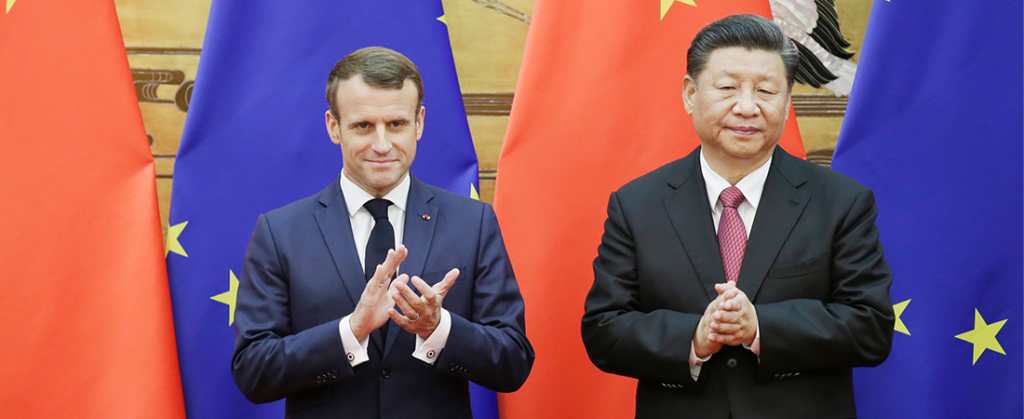2022 saw a lot of unforeseen events take place such as the war between Russia and Ukraine, changing of governments in Malaysia and Australia, even Elon Musk’s Twitter takeover. While we should still expect the unexpected, there are always some elements that can be forecasted for the future. Here are a few major events to watch out for in APAC in 2023 along with the impact they may have from a global standpoint.
G7 2023
Japan hosts the G7 summit in the city of Hiroshima in May. In light of Russia’s invasion of Ukraine, China and North Korea’s nuclear proliferation, the threats posed by nuclear weapons and nuclear disarmament will be high on the G7 agenda. China and North Korea’s nuclear proliferation in particular raises regional and global security concerns. With regards to Taiwan, the South China Sea disputes, as well as the new Cold War with the US will be up for discussion.
Regional Elections
Thailand: Thailand is set to go to the polls on May 7. Despite term limits, current Thai Prime Minister Prayut Chan-o-cha is seeking a third consecutive term as leader and has recently jumped parties in an attempt to consolidate power. The upcoming elections may signal an opportunity to turn away from Thailand’s military regime with Pheu Thai, which swept most seats in 2019 but was thwarted by the military coalition.
Anticipated election topics include:
- A slew of electoral changes, including a return to a two-ballot system and a drop in party-list lawmakers, will give larger political parties an upper hand.
India: The 2023 Assembly Elections in India will set the stage for the General Elections in 2024. Nine states and one union territory are expected to hold Assembly elections this year. While 2022 saw Prime Minister Narendra Modi’s Bharatiya Janata Party (BJP) continue its political dominance, its performance this year will determine if it sees a third successive electoral victory in the 2024.
Anticipated election topics include:
- The union budget for the year will be presented in February. Given that this would be BJP’s last union budget till the 2024 elections, every penny spent will be microscopically scrutinised. How India deals with inflations, FDI, economic slowdown will depend on this.
- Since the state elections will be year-round, it would be a politically tumultuous year for India creating hurdles for social and economic activity. For example, the contentious Ram Temple in Ayodhya will be inaugurated by the end of 2023. Political turmoil, riots and general friction can be expected at this time.
China’s reopening and economic recovery
China’s Two Sessions: the National People’s Congress, an annual legislative session to appoint new leaders; and the Chinese People’s Political Consultative Conference, its top political advisory body, will take place concurrently in March. Xi Jinping is expected to be confirmed as president for his third term, while Li Qiang is expected to be announced as the new premier.
As China reopens after abolishing its zero-COVID measures, foreign businesses are gearing up for travel into China. While reopening is expected to help boost foreign investment, China’s post-COVID-19 economic recovery could still take some time. Analysts predict China’s domestic focus will mean a less confrontational approach to foreign policy.
Impact of global inflation in APAC
The impact of higher interest rates will be the major economic theme for APAC in 2023. Central banks across the region raised policy rates in 2022 to combat inflation, which will be felt keenly this year on governments, households and businesses, according to the Economist. With APAC still battling the economic fallout of the Ukraine, the first half of 2023 looks to be a bumpy ride.
Analysts from Morgan Stanley however have forecasted inflation to likely return to their respective central banks’ comfort zones by mid-2023.
Technology trends in APAC
Technology will be leveraged to capitalise as well as protect firms from volatility. The main trends to look out for are:
- Generative AI: APAC has one of the fastest growing AI markets in the world. APAC’s investments in AI are expected to account for close to 40% of its total information communication technology (ICT) investments by the end of 2023.
- Robotics: Countries like Japan, Singapore and South Korea face an increasingly ageing population. With labour shortages on the rise, organisations will rely more on robot workers. This would range from autonomous mobile robots and collaborative robots, to robot security guards and drones. A good example of this would be the Hyundai factory in Singapore. Its highly automated assembly line is expected to produce up to thirty thousand vehicles by 2025 but is only manned by 30 personnel.
- Cloud computing: Cloud computing had gained a lot of popularity during the pandemic and is expected to grow and be adopted more in the future. The APAC region accounts for 14% of the global cloud spending. This figure is expected to expand with new innovations driven by cloud computing along with governments and organisations putting in more effort to future-proof their operations.






